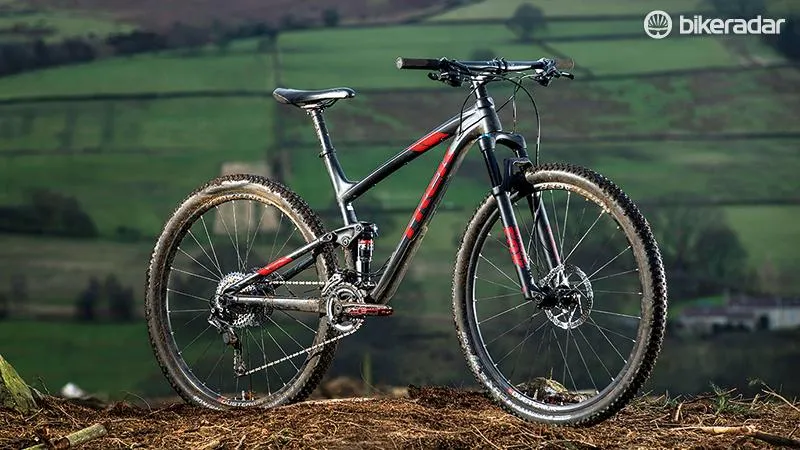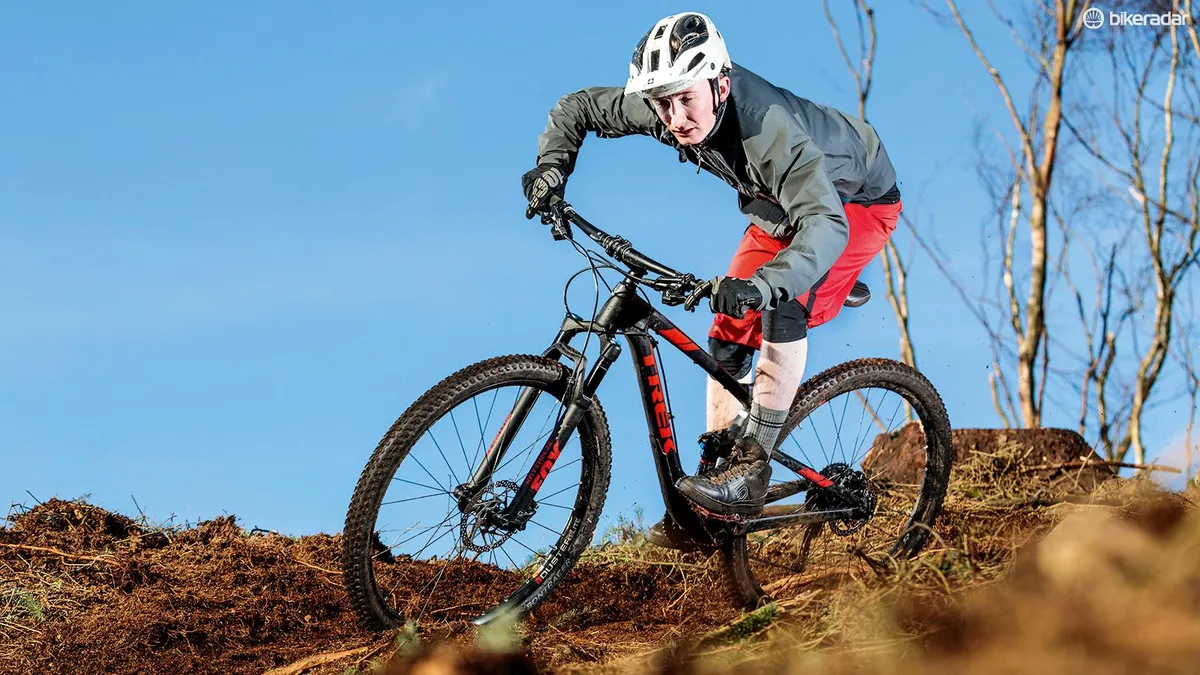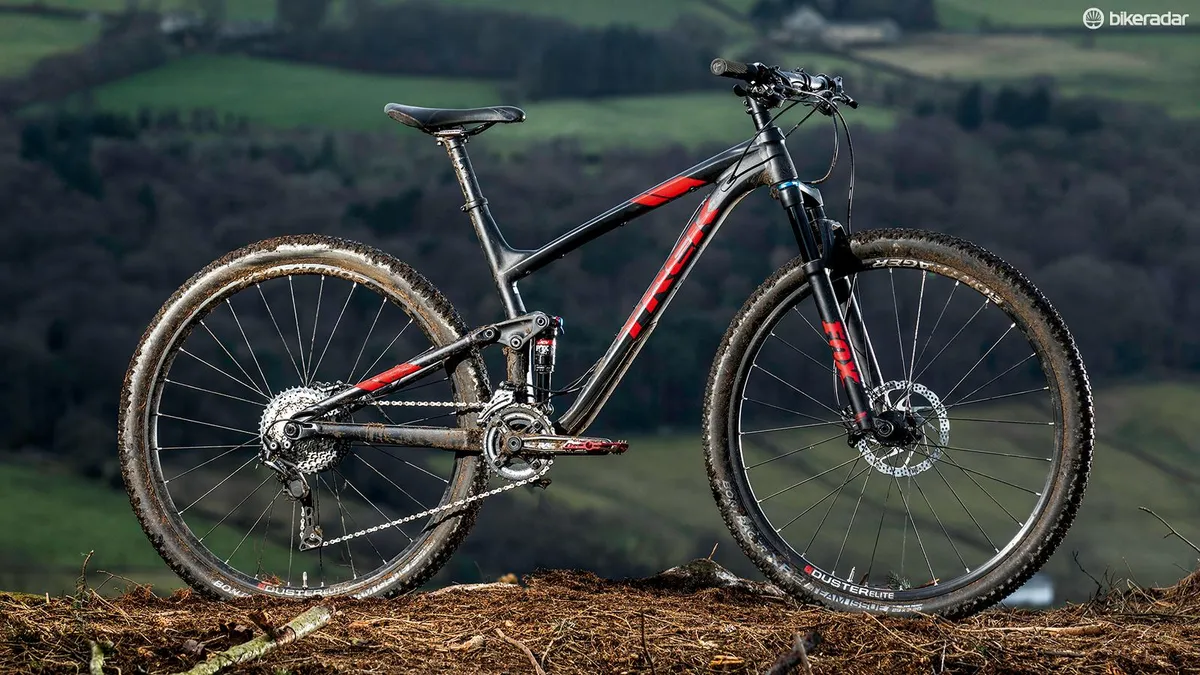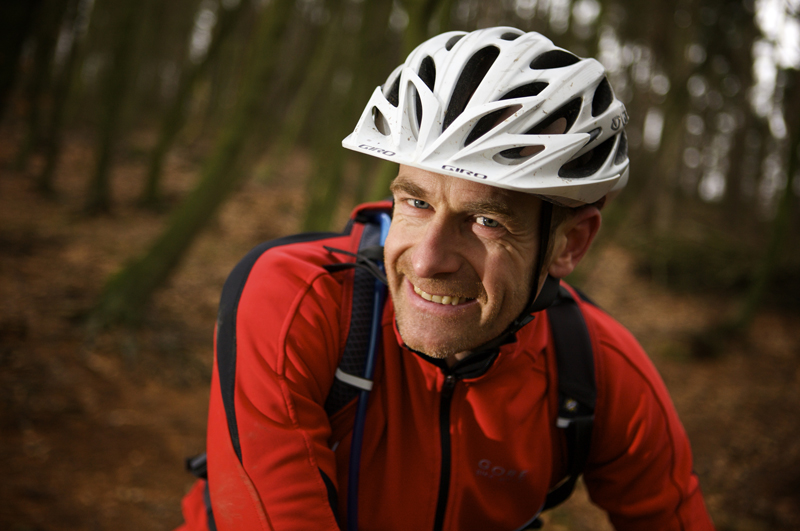Trek’s entry-level Top Fuel is efficiently stiff with a conventional ride character, but not as smooth or naturally fast as the competition.
Trek Top Fuel 8 frame and kit
The all-aluminium Top Fuel is also available in full-carbon and carbon front/alloy rear form. At a claimed 2,725g (18.5in frame with shock), it’s a reasonable weight, and the short single-piece rocker and Boost-width back end keep it solidly stiff.
Trek’s Full Floater design sees the custom RE:aktiv shock squeezed between the linkage and extended chainstay tips, rather than attached to the mainframe, while the ABP rear pivot is concentric with the axle to reduce the effect of braking on the suspension action.
A Mino Link flip chip on the rocker lets you adjust the geometry by half a degree, and there’s semi-internal dropper post routing. The bottom bracket is a press-fit unit.
The Trek’s Shimano Deore brakes and SLX gears work fine, and some racers and marathon riders still prefer twin-chainring set-ups such as the Race Face double crankset found here.
The 32mm-legged Fox fork is smooth and light, and the in-house Bontrager kit is okay for holding onto and sitting on, though the wheel pack doesn’t do the bike’s ride any favours.

Trek Top Fuel 8 ride impressions
The Trek feels traditional in terms of ride character. With a 70-degree head angle, the underlying handling is twitchier and less stable. To offset this, Trek has fitted a long stem (90mm) and narrow bar (720mm) to bring the rider’s weight forward and make the steering less likely to wander offline.
This classic recipe for race-bike handling has endured for over a decade and a lot of riders will be comfy and reassured by it. It does mean the Top Fuel feels significantly less responsive and alert to sudden traction slips and grabs though. Each tweak of the bar takes more effort and it feels more heavy-handed and clumsy in tight or slippery situations.
The Bontrager wheels and tyres don’t do the natural velocity and vivacity of the Trek any favours either. Hefty overall weight (4.83kg) means acceleration is steady rather than snappy, even with the fast pick-up of the Rapid Drive rear hub.
The XR2 tyres are the top-grade Team Issue version, but the relatively old carcass lacks the supple compliance and eager roll/grip feel of other tyres. On the plus side, that means they’re likely to last longer in tough terrain than other race rubber.

However, I noticed a dramatic upgrade in smoothness, acceleration and easy speed sustain when I swapped the significantly lighter, Maxxis-shod wheels of the Giant Anthem onto the Top Fuel.
Supple flow isn’t a hallmark of the rear suspension either, but, like the steering, that’s a deliberate choice that more traditional racers may prefer. While the suspension architecture is the same as on most of Trek’s full-sussers, the Top Fuel gets a more stubborn cross-country tune of its proprietary RE:aktiv low-speed compression damping threshold valving.
This keeps the shock more stable under power, particularly at lower revs or when sprinting out of the saddle. Again, that’ll sound ideal to a lot of racers, but even with a bearing (rather than bushing) mount at the top of the shock, it's not that sensitive. That limits speed-breeding, ground-tracking traction and smooth rolling over stutter bumps, roots and rocks.
Trek Top Fuel 8 overall
The end result is a bike that’s basically fine in an old-school way but never felt as quick or alive as it could be. It even caused several damning ‘I thought the brakes were rubbing’ stop checks, which is the last thing you want from a speed machine.
However, a simple wheel swap proved it has the potential to be quicker and smoother.

